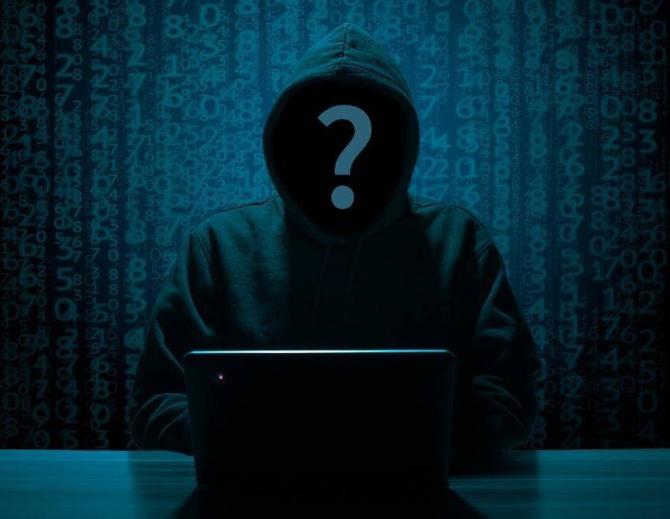Cambodia, Myanmar, Laos and a few other South East Asian countries have become a hub of transnational organised gangs which are increasingly carrying out cyber crimes like financial frauds, digital arrests and ATM card scamming in India, according to a senior official.

Indian Cyber Crime Coordination Centre (I4C) CEO Rajesh Kumar said that to give a focussed attention and check such organised cybercrime gangs, the ministry of home affairs has set up an inter-ministerial committee headed by a top security officer.
"We have seen a spurt in organised cybercrimes emanating from south east Asian countries that include Cambodia, Myanmar and Laos PDR. The increase is in terms of volume, the number of victims (Indians) affected and the amount of money lost," Kumar told a press conference.
The senior IPS officer said that 45 percent of cyber financial frauds taking place in the country are originating from the South East Asia.
The high-powered committee, headed by the special secretary (internal security) in the MHA, has as members officers from the Reserve Bank of India, department of financial services, banks, financial intelligence unit, department of telecommunication and financial technology companies among others.
The I4C is a wing under the cyber and information security division of the MHA and is mandated to tackle the burgeoning cybercrimes and attacks in the country in a coordinated and comprehensive manner.
"The quantum of money lost per crime is much higher in cybercrime cases originating from the South East Asian countries and hence this high-level committee has been constituted to have a very focused action here," the CEO said.
He said the I4C was "continuously monitoring and blocking" cybercrime infrastructure like Skype accounts, advertisements on Google and Meta, SMS headers, SIM cards, bank accounts etc.
Kumar said that 3.25 lakh "mule" accounts (bank accounts used for laundering cybercrime funds by using KYC documents of others) have been frozen over the last four months.
More than 3,000 URLs and 595 mobilephone apps have been blocked, 5.3 lakh SIM cards and 80,848 IMEI numbers have been suspended since July last year and 3,401 unlawful content on various social media platforms, website and WhatsApp groups have been taken down over the last two months for "committing" cybercrimes, he said.
This includes 1,500 Skype IDs being taken down too, Kumar said. "We have seen that the cybercrimes emanating from this (South East Asian) region are being perpetrated by luring people through investment, gaming and dating apps, and fake trading apps etc.," the officer said.
The total amount reported to have been lost in cybercrimes in the country over the last few months is Rs 7,061.51 crore, out of which "we have been able to put a lien on around 12 per cent, which is about Rs 812.72 crore", the CEO said.
Kumar said cybercrimes such as "digital arrest" -- in which someone impersonates a government official -- were also being reported and as many as 4,599 complaints of this fraud were reported to between January-April.
During the same period, 20,043 complaints of trading scam, 62,687 of investment scam and 1,725 of romance or dating scam have been reported in the country.
"This is an abuse of technology...these are basically spoof calls. These calls are being made from abroad by spoofing an Indian number...we are working with the DoT to check this," Kumar said.
"I would like to inform the general public that they should disconnect such calls and not panic...," he said.
The CEO said that in a particular case, a number of Indian youngsters were "lured" in lieu of providing data entry jobs in Cambodia but once they reached there using the services of "fake" domestic agents, they were "compelled" to carry out cybercrimes like investment scams and trading app and dating scams.
The Andhra Pradesh police recently arrested three local agents after some Indian nationals employed in a cybercrime "suspected scam compound" in Sihanouk city of Cambodia protested.
The Indian Embassy in Phnom Penh has taken steps for their safety and 360 Indians are being sent back while some 60 people have been arrested by the local police, Kumar said.
The Indian government is in touch with the Cambodian government for repatriating the rest of the Indians stuck there and being forced into cybercrimes, he added.
"We would like to request and appeal to the public that they should not fall for such false and fake recruitment advertisements. Do not fall for easy income schemes that promise you huge returns in a very very short duration," Kumar said.
"There are some people who are using good knowledge for bad work. The cybercrimes do a grave harm to the country. We at I4C along with other agencies are trying to enhance our capabilities to better tackle these crimes," the CEO added.
Speaking about the recent spate of bomb threat emails sent to schools, hospitals and airports in various parts of the country, Kumar said these have been sent using VPNs (virtual private network) and investigating agencies were taking help from various countries to trace the culprits.
He also said they "cannot rule out a Chinese hand" in various cybercrimes that are affecting Indians.










